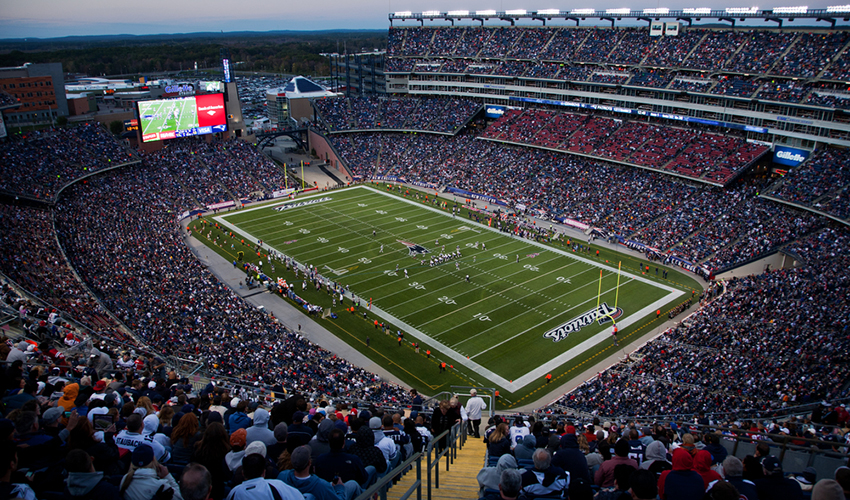Can A City’s Weight Be Tied to Its Sports Teams?

Apparently, there’s more riding on the game than just your sanity. Your diet is affected, too. Patriots game photo by spirit of america / Shutterstock.com” target=”_blank”>spirit of america / Shutterstock.com
A recent study looked at what effect, if any, a city’s football team had on what fans ate the next day, and it turns out, our football teams and diets are correlated. That’s right. If the Pats win, we all eat healthy. If they lose, it’s a calorie and saturated fat binge fest. While it’s definitely not an exact science, the findings were published last month in the journal Psychological Science.
According to a report in the New York Times, researchers found that football fans’ saturated fat consumption increased by as much as 28 percent after a loss and decreased by 16 percent after a win. Defeats by a slim margin led to greater consumption of calorie and fat-saturated foods than blowouts. What city was ranked the worst offender? Pittsburgh.
This seems like it would be tied to stress-eating, right?
The New York Times reports:
“If you’re a fan, you say, ‘We lost, I lost,” said Pierre Chandon, a co-author of the study and a marketing professor at INSEAD, a Paris-based business school. “When people feel their identity is threatened, they compensate by eating indulgent food. It’s more difficult to resist temptation. No one ate broccoli after a defeat.”
Previous studies have linked sports defeats to spikes in alcohol-related crimes, domestic violence and heart attacks, but this was the first to analyze the effects on fatty food consumption.
While losing a game appears to trigger emotional eating, a team victory may have the opposite effect, Dr. Chandon said, because, “Your ego is boosted, you have higher self-esteem, and it’s easier to feel strong and good about yourself. It’s easier to delay gratification or resist temptation.”
Researchers looked at food diaries kept for 14 days during the 2004 and 2005 football seasons, taking a close eye to Sundays, Mondays, and Tuesdays. Those were really good Patriots years (the Pats won the Super Bowl in 2004 and lost in the playoffs in 2005), so it’s no wonder Pats fans were not prime offenders.
The study looked at 726 individuals over 3,151 “consumption days”, including fans from cities whose teams won and lost. Using archival and experimental data, the study showed that when a fan’s favorite football team loses, they would consume less healthy food. On the Mondays following a game, saturated fat and food intake increased significantly in cities with losing teams, and decreased in cities with winning teams. In cities without an NFL team, or a team that did not play, levels remained the same.
What’s really interesting is that the study showed similar results when measuring the food consumption of French soccer fans, so it is reasonable to conclude that this study could make sense for all major sports.
Let’s hope the Red Sox stay on track then, for the sake of our waistlines.


